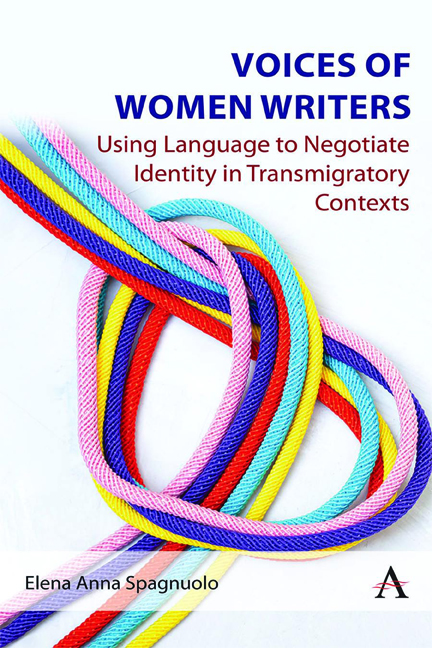Book contents
- Frontmatter
- Contents
- Introduction
- 1 Revoicing Female Migrant Identities through Creative Multilingualism
- 2 Gianna Patriarca: Self-Translating as a Strategy of Re-grounding
- 3 Dôre Michelut: Coming to Terms with the Mother Tongue
- 4 Licia Canton: Rewriting the Italian Mother (Tongue, Land)’s Legacy in Self-Translation
- 5 Francesca Duranti: ‘Trans-Writing’ the Self through Acts
- Conclusion
- References
Conclusion
Published online by Cambridge University Press: 01 March 2024
- Frontmatter
- Contents
- Introduction
- 1 Revoicing Female Migrant Identities through Creative Multilingualism
- 2 Gianna Patriarca: Self-Translating as a Strategy of Re-grounding
- 3 Dôre Michelut: Coming to Terms with the Mother Tongue
- 4 Licia Canton: Rewriting the Italian Mother (Tongue, Land)’s Legacy in Self-Translation
- 5 Francesca Duranti: ‘Trans-Writing’ the Self through Acts
- Conclusion
- References
Summary
The present book has explored the connection between migrating, writing and self-translating within transmigratory contexts, specifically investigating how transmigrant authors use language to negotiate and reframe their identity against the backdrop of the monolingual paradigm. Starting from the premise that writing and translating are not only linguistic and cultural processes but also self-reflexive practices, they have been examined in conjunction with a process of redefinition of the self.
To this end, I selected a corpus of four transmigrant authors of Italian origins, who moved to English-speaking countries. The aim was to work with a language pair, that to date, has been mainly neglected. Indeed, while the relation between English and Italian in writing and translating has been investigated in several articles, so far it has not been the focus of any specific volume. The decision to work with Italian and English was not only connected to a personal interest (as I am an Italian speaker who lives and works in the UK). The focus on Italian and English also allowed me to investigate the subversive power of the former and the role played by multilingual practices in reshaping the borders and dynamics between dominant and dominated languages. By juxtaposing Italian and English on the page, or writing in both, the authors in this volume rewrite the borders between linguistic systems, challenging the norms that dictate language dynamics and redefining whether and how languages assert themselves within the context of globalisation.
The choice to focus on Italian was also connected to its specific connotation with respect to the monolingual paradigm. Like mentioned in Chapter 1, the concept of a mother tongue acquires an interesting value within the Italian context, where dialects, standard and regional Italian coexist. Given this connotation, the Italian language perfectly allows an examination of multilingual practices as postmonolingual, a point that has been put forward in this volume. The writing and self-translating performances of the authors can be considered postomonolingual, ‘as they survive, exist and emerge’, against the monolingual paradigm. Indeed, all the writers in this corpus were never fully included in the monolingual paradigm, yet they conceived of themselves as monolinguals and attempted to establish relations with a unique mother tongue.
- Type
- Chapter
- Information
- Voices of Women WritersUsing Language to Negotiate Identity in (Trans)migratory Contexts, pp. 143 - 146Publisher: Anthem PressPrint publication year: 2023

